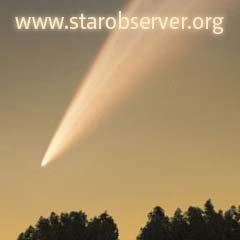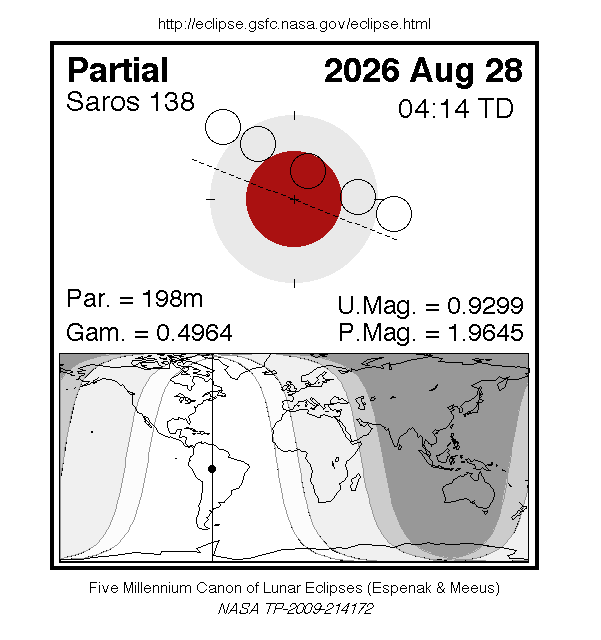on my webpage! I am an experienced spacecraft analyst at the European Space Operations Centre via Telespazio Germany GmbH. Currently, I am the analyst for the X-ray astronomy mission XMM-Newton, but have worked as an analyst for almost all Earth Explorer spacecrafts previously. In the past I have worked as an astrophysicist studing accreting neutron stars and cosmological neutrino sources. For more details please have a look at the “About me” menu.
ESA Space Science News
ESA observations of interstellar comet 3I/ATLAS
26/02/2026
The European Space Agency (ESA) reacted promptly to the discovery of comet 3I/ATLAS on 1 July 2025. Soon after they were alerted to its existence by automated detection systems, ESA astronomers began using ground-based telescopes in Hawaii, Chile, and Australia to monitor its progress.Since then, the comet has been observed by space telescopes close to Earth, including the NASA/ESA Hubble Space Telescope, the NASA/ESA/CSA James Webb Space Telescope, XMM-Newton and XRISM. In October and November 2025, ESA turned interplanetary voyagers Mars Express, ExoMars Trace Gas Orbiter and the Jupiter Icy Moons Explorer (Juice) in the direction of the comet to make further observations from excellent vantage points. The data from Juice has recently arrived on Earth and scientists are busy analysing them to see what they reveal.Follow the links below for more information.
Read more
Hubble & Euclid zoom into cosmic eye
03/03/2026
For this month’s ESA/Hubble Picture of the Month, NASA/ESA's Hubble Space Telescope is joined by ESA’s Euclid to create a new view of the most visually intricate remnants of a dying star: the Cat’s Eye Nebula, also known as NGC 6543.
Read more
First glimpse of comet 3I/ATLAS from Juice science camera
26/02/2026
This striking image from the science camera on ESA’s Jupiter Icy Moons Explorer (Juice) shows interstellar comet 3I/ATLAS spewing dust and gas.
Read more
Annular solar eclipse seen from space
20/02/2026
Proba-2's view from Earth orbit of an annular solar eclipse
Read more
Smile sets sail for Europe’s Spaceport in French Guiana
20/02/2026
Just over a year since Smile arrived in the Netherlands in two parts, the now-complete and thoroughly-tested spacecraft has left for good. With a launch window set for 8 April – 7 May on a Vega-C rocket, the joint European-Chinese mission is almost ready to embark upon its unique space mission.
Read more
The stellar lifecycle in a nearby spiral
20/02/2026
Two powerful instruments of the NASA/ESA/CSA James Webb Space Telescope joined forces to create this scenic galaxy view for today’s Picture of the Month.
Read more
Webb maps Uranus's mysterious upper atmosphere
19/02/2026
For the first time, an international team of astronomers have mapped the vertical structure of Uranus’s upper atmosphere, uncovering how temperature and charged particles vary with height across the planet. Using NASA/ESA/CSA James Webb Space Telescope's NIRSpec instrument, the team observed Uranus for nearly a full rotation, detecting the faint glow from molecules high above the clouds. The results offer a new window into how ice-giant planets distribute energy in their upper layers.
Read more
Hubble, Euclid & Subaru uncover dark galaxy
18/02/2026
Employing NASA/ESA Hubble Space Telescope in combination with ESA Euclid and ground-based NAOJ Subaru Telescope, astronomers identified a galaxy that appears to be almost entirely dominated by dark matter with only a smattering of stars. The galaxy, known as Candidate Dark Galaxy-2 (CDG-2), appears to contain just four globular star clusters (compared to the Milky Way’s 150-plus), and dimly shines with the light of only about 1 million Suns.
Read more
Cheops discovers late bloomer from another era
12/02/2026
Scientists used the European Space Agency's Cheops satellite to discover that the planetary system around the star LHS 1903 challenges current planet formation theories with the unusual order of its planets. Surprisingly, the most distant outer planet might be rocky and seems to have formed later – in a different environment than the other planets around the star.
Read more
Hubble captures light show around rapidly dying star
10/02/2026
The Egg Nebula
Read more
The journey of Juice
11/12/2025
Dark rings and new light
30/01/2026
For this Picture of the Month from the NASA/ESA Hubble Space Telescope, we have a sight of an uncommon galaxy with a striking appearance.
Read more
Plato passes vibe check
15/01/2026
Plato, the European Space Agency’s mission to discover Earth-like exoplanets, successfully passed a first round of tests designed to ensure that the spacecraft is fit for launch.
Read more
Fly through Webb’s cosmic vistas
25/12/2025
On the launch anniversary of the NASA/ESA/CSA James Webb Space Telescope, ESA presents a unique compilation of zooms into stunning cosmic views.
Read more
The journey of Juice – episode 2
11/12/2025
ESA’s Jupiter Icy Moons Explorer (Juice) is on an epic eight-year journey to Jupiter.
Read more





